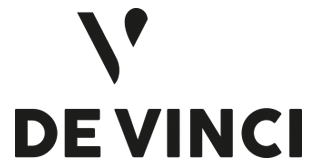@conference{pignot_2144,
title = {Anti-work as affective commons: dogmatism, confidence, scepticism, and terror},
author = {Edouard Pignot and Thomas Lennerfors},
url = {https://www.egos.org/jart/prj3/egos/main.jart?rel=de&reserve-mode=active&content-id=1658501434997&subtheme_id=1637466415495},
year = {2023},
date = {2023-07-01},
booktitle = {38th EGOS colloquium},
address = {Cagliari, Italy},
abstract = {While the ideas of contemporary French philosopher Alain Badiou have been largely influential on literature, art humanities, political sciences, government laws, cultural studies, and even education, geography and religion studies - including noticeable exegeses in the Anglo-Saxon world from Slavoj ?i?ek, Simon Critchley and Ed Pluth - their use in organization studies remains, perhaps startingly, marginal. Further, existing Badiouian organizational studies focus mainly on Being and Event but much less on his two other major opuses: Theory of the subject and Logics of World. The novelty of Badiou is to consider subjects at the interaction between language and psycho-sexual, traumatic experiences, which remain impossible to symbolize and thereby constitute political events. The notion of evental change does not bring about a new world on its own, but it requires a series of acts in a context, a form of faithfulness to the event - a performance which this paper further investigates.
Going beyond the current use of Badiou in organization studies, we propose a Badiouan theoretical framework to address organizational subjects' performativity, in terms of subjectivation (anxiety, courage) and subject-process (superego, justice), whose articulation gives rise to four various modes of affective acting (terror, skepticism, dogmatism and confidence). A framework comprising these modes of affective acting is aimed to support subjectivities intended to drive change in society, and to avoid those subjectivities favouring the status quo. Therefore, Badiou's approach is highly relevant for the cultivation of subjectivities promoting alternative goods, rather than focusing on critique and resistance.
To illustrate the relevance of this framework empirically, we offer a Badiouian interpretation of antiwork politics, a left-wing social movement which is either mocked or coopted by corporatism - and loses its radicality. As subjectivity is progressively manipulated and colonized by management, the novel application of Badiou's framework to the anti-work problem enables to revive the political and ethical dimension of work psychodynamics that is lost through individualistic and intra-psychic focus.},
keywords = {},
pubstate = {published},
tppubtype = {conference}
}















